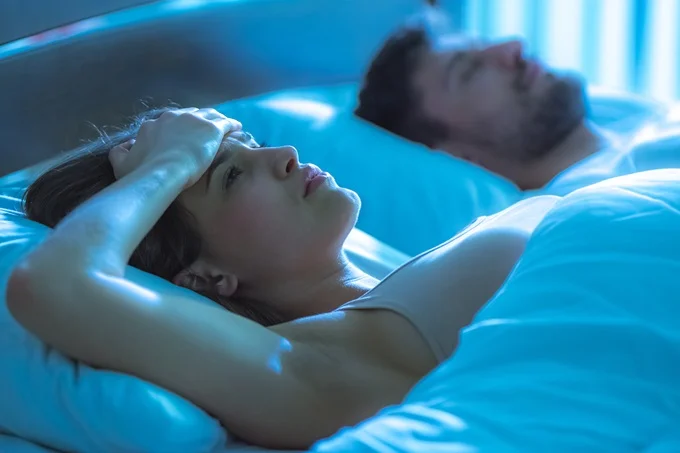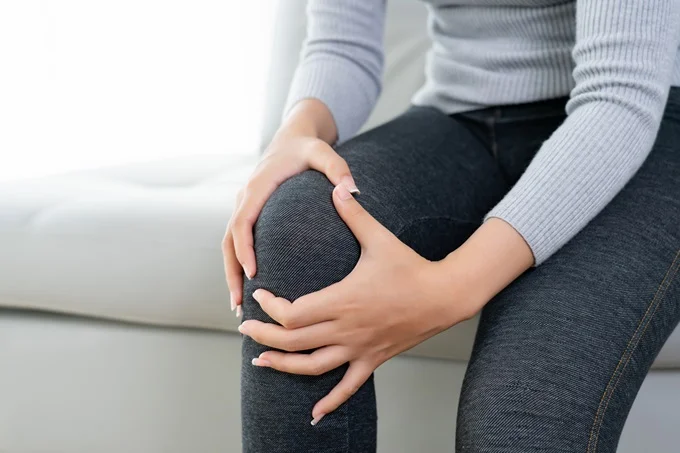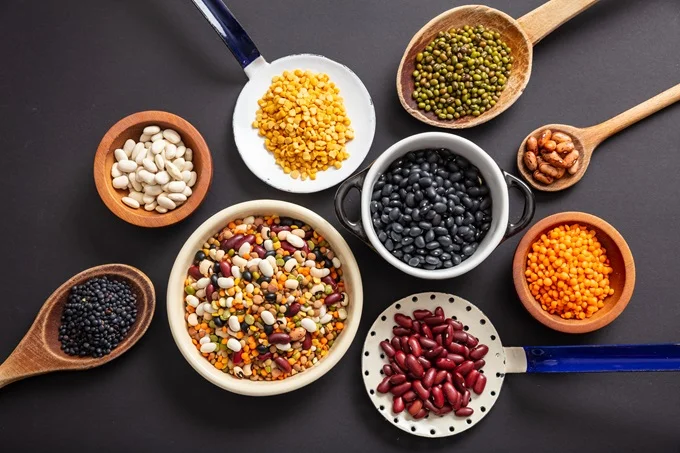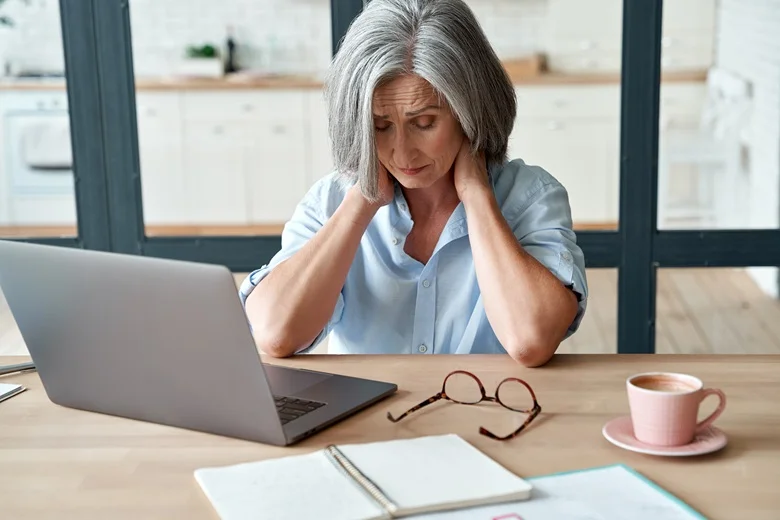Table of Contents
With the change of life comes a plethora of physical and emotional challenges with which the mind and body has to cope. One of these is a feeling of almost constant exhaustion, yet most women blame their chronic tiredness on anything other than what is happening to their hormones.
Yes, Menopause Can Cause Fatigue. But Why?
The first sign that your hormone levels are changing is called the perimenopause, and this is often heralded by irregular periods. Some women experience a change in the duration of their period; it may be lighter and last just a few days, but also it could be heavier with pain and flooding which goes on much longer than usual. Feelings of extreme fatigue are quite common during this time and energy levels take a dive. Very often the menstrual cycle becomes haphazard and it’s not unusual for a woman to miss periods completely. However, it’s not until twelve consecutive periods have been missed that menopause is medically verified.
- Hormone Levels
- A major reason for the feelings of unusual tiredness during the perimenopausal phase is that the ovaries are gradually producing less oestrogen. Decreasing oestrogen, changes in the levels of progesterone, along with the hormones associated with adrenal and thyroid glands, affect the body’s flow of cellular energy. This hormonal imbalance triggers feelings of exhaustion.
- Hot Flushes
- One of the most annoying and very common symptoms of impending menopause is the hot flush, or flash as it is sometimes known. This can happen at any moment, without warning, and for no apparent reason. One minute you might be chatting happily with a friend or colleague and the next you feel your skin turning red and perspiration breaking out on your brow. You feel a wave of heat sweeping over your body and all you want to do is to climb into a refrigerator or dive into an icy cold pool.
- The discomfort of hot flushes, and other distressing symptoms of menopause, may be reduced by a natural supplement containing some of the most effective plant-derived extracts which have stood the test of time in easing and balancing female hormonal issues.
- Night Sweats and Insomnia
- Hot flushes also happen during the night. They take the form of night sweats which wake you and leave you feeling stressed, anxious and uncomfortable. These feelings of extreme heat can be quite distressing, but one of the worst aspects is the disruption to sleep patterns.

-
- A cool shower before bed, or even during the night, can help. It is also possible to get chilled gel pads which go under pillows and sheets to help keep you from burning up. Keep a flask of iced water beside your bed and wear lightweight cotton nightclothes. Natural and very effective support with the effects of night sweats, anxiety and insomnia comes in the form of a specially blended combination of herbal extracts put together into a night capsule supplement.
- Mood Swings
- For some women, menopause is an emotional rollercoaster. Low mood, coupled with stress and anxiety, can play havoc with general mood patterns. This often has its foundation in hormonal imbalance and can lead to feelings of irrational anger and anxiety. Yoga and tai chi are often helpful but also there are certain therapies available on the NHS. Cognitive Behavioural Therapy (CBT) is a method of support which may help with low mood and anxiety. GPs are able to give referrals to specialists in this field.
- Menopausal Joint Pain
- Because the lead-up to menopause is usually between the age of 45 and 55, it’s very often the case that bodily aches and pains are put down to the first signs of ageing, but they are one of the most prevalent symptoms of ‘the change.’ Cruelly, it is most often the joints which are used for normal mobility, such as knees and hips which are worst affected. The lowering effect of constant joint pain can leave you feeling completely wiped out.

How Long Does Menopausal Fatigue Last?
As with most challenging issues, it is more bearable to face a problem when you can see light at the end of the tunnel. With the kind of fatigue suffered by many women before and during menopause, it can feel as if this aspect of the change of life could last forever. The good news is that symptoms such as excessive tiredness are transient and usually it takes about three to four years at the most for the body to become used to its new chemistry.
Lack of energy and constant tiredness can also be due to certain other medical issues such as diabetes, anaemia, thyroid imbalance, coronary problems, kidney or liver disease. If you are concerned about the level of fatigue you are experiencing, you may wish to have your doctor establish that it is definitely due to the menopause. When you are sure that menopause is the cause, there are various lifestyle changes you can make to help yourself feel more energised.
How to Cope with Fatigue During Menopause
Menopausal symptoms can sometimes become severe enough to need extra help and the clinical route is usually hormone replacement therapy (HRT), which has to be prescribed by your GP. The National Institute for Health and Care Excellence (NICE) report that HRT should only be offered to women after discussing with them not only the benefits, but also the risks and side effects.
If you are keen to find a natural approach to coping with symptoms, our menopause support category offers eleven natural products to support hormone balance and help relieve the discomfort of menopause.
There are several tried and tested ways to help yourself feel energised during perimenopause or menopause. You may have to make a few small lifestyle adjustments, but these can bring positive differences to how you cope with the change taking place with your body.
- A Comfortable Bed
- Get a summer-tog duvet or switch to a sheet and light covers so you can easily remove a layer if you’re burning up during the night. There are bed sheets available that are made from fabric which helps to draw away moisture from your body, so you stay dry. Pillows are important too. Make sure you have a very comfortable one which supports your neck and head properly. Silk pillowslips are very cool. An electric fan positioned where you can easily switch it on in the night when needed is very helpful.
- Do Some Exercise
- It’s not easy to feel motivated when you’re exhausted but doing some physical exercise will help boost energy levels and also help prevent weight gain. Choosing a form of exercise that you enjoy will produce feel-good hormones and this will help you to stick with it so you’re more likely to make it part of your daily routine.

- Power Nap
- Try to find time for a 20-minute snooze, preferably at the time of day when you feel at your lowest ebb. This could be just after lunch or later in the afternoon. Your body will tell you when you need to just close your eyes and rest. If the working day makes it difficult to actually lie down and nap, then try to find a quiet corner where you can sit with eyes closed and do a bit of mindfulness. It can often be almost as effective as a full-on sleep.
- Don’t Over Commit
- It’s easy to take on more than you can comfortably cope with and, during menopause in particular, it’s not a great idea to be running yourself ragged trying to fulfil a host of commitments. Learn to say no to all those things which can be avoided.
- Drink More Water
- When you are dehydrated your body has to work very hard just to function, and this alone will make you feel extremely fatigued. Keep a bottle of water handy so it’s easy to keep taking a swig. Caffeine-free herbal tea is also a good choice to stay hydrated during those times when water simply isn’t what you fancy.
- Eat Well and Control Portion Size
- Being overweight will make you feel sluggish and low in energy. Choose foods which are high in the vitamins and minerals your body needs and cut out those things which are full of empty calories.
Foods That Help To Ease Menopause Fatigue

Many women are keen to find non-pharmacological options to cope with troublesome symptoms, particularly those to whom hormone replacement therapy (HRT) carries high risk factors. Studies have found that certain foods and dietary supplements may play an important role in oestrogen production, thereby alleviating many of the unpleasant and exhausting effects associated with menopause.
Diet is very important when it comes to helping yourself through the menopause. Take time to prepare healthy meals full of the vitamins your body needs. Certain foods are particularly effective, and here are some ideas which you may wish to include in your diet:
- Pomegranate – An 8 oz glass of pomegranate juice supplies you with vitamins C, A, E as well as folic acid. It is also rich in estrone which is a compound similar to oestrogen. Pomegranate has been found to be effective in giving relief from both menopausal and post-menopausal problems.
- Oily fish – wild salmon, mackerel and sardines have been found to be beneficial due to the presence of essential fatty acids such as Omega-3. These contain anti-inflammatory properties which help support you during both menopause and post-menopause.
- Dairy – low fat milk, yogurt and cheese are rich in calcium, phosphorous, potassium, magnesium and vitamins D and K which are necessary for bone health. Studies have found that postmenopausal women who ate more dairy had higher bone density than those who ate less, so including a moderate amount of these type of dairy products in the diet may help avoid osteoporosis in later years.
- Wholegrains – oats, quinoa and brown rice are rich in fibre and B vitamins. They help reduce risk of heart disease, stabilise blood sugar and reduce hot flushes which are made worse by high blood pressure.
- Beans, pulses and lentils – excellent for heart health, they help lower cholesterol levels as well as being rich in potassium. They are also rich in magnesium which helps your body to absorb and use calcium and vitamin D. Magnesium also helps aching muscles relax.

- Dark green vegetables – kale, spinach, broccoli, cauliflower and Brussel sprouts are all rich in calcium and potassium which supports muscle and bone health. They also contain magnesium, fibre and vitamin B which help keep weight stable, regulate energy and reduce mood swings.
- Fresh fruits – dark berries may be particularly beneficial during menopause.
Foods To Avoid
Try to avoid processed meats, refined carbs such as white bread, white rice, pasta and sugars. It may also help to reduce your intake of certain plant foods known as ‘nightshade’ vegetables which contribute to joint inflammation. Nightshade vegetables are potatoes, tomatoes, peppers and aubergines.
Too much high-fat dairy food can also cause problems, as can processed food such as cakes, biscuits, crisps and fast food. Caffeine, salt and alcohol are also not great, particularly if you are experiencing joint pain. Research has found that sugar can cause increased pain if you happen to suffer from any of the various forms of arthritis such as osteo, fibromyalgia or gout.

Set a limit on the amount of caffeine and alcohol you consume. Both will mess with your energy levels, giving you a short-term rush, but then letting you down with a bump as they wear off and leaving you even more exhausted than before.
Vitamins To Help With Menopause Fatigue
Introducing the healthy choices into your everyday diet is a huge step towards self-help in coping with menopause and boosting energy levels, but sometimes extra support is needed with the more exhausting effects of this inevitable transition.
Vitamin groups B, C, D and E are all important in the quest for support during the challenges of the menopause. In addition, there are various plant extracts which have been found to give positive benefits. Many of these are included in two unique supplements developed to support women though the menopause. The day capsules are formulated to ease the frequency and discomfort of hot flushes, mood swings and fatigue. The night capsules target night sweats, anxiety and restlessness. Both supplements may also help to balance hormones.
Extra Help and Support
Some women are diagnosed with early or premature menopause, known as premature ovarian insufficiency; others may have to undergo hysterectomy which brings forward the menopausal symptoms. For anyone coping with these issues, there is a dedicated organisation known as The Daisy Network where excellent information and support is available.
For general support, available to anyone coping with menopause or supporting someone who is struggling with symptoms, The British Menopause Society (BMS) has a wealth of information, advice and support on hand. The service provides a guide for healthcare professionals but also to anyone in need of answers to questions and advice. There are various ways of tapping into the support given by the BMS such as phone calls with specialist nurses, information sheets, newsletters, meetings, seminars and workshops on all the aspects of menopause. Many of their guides are available as downloads for free but some of their services have to be paid for. BMI also have a facility which can help put you in touch with a recommended and verified menopause specialist local to you.
Take Control
If menopause fatigue is causing you problems you will find that by making the decision to place emphasis on those lifestyle changes such as eating the right foods, getting enough exercise, learning to relax and getting plenty of sleep, you’ll have much more energy to enjoy life.
Always very efficient. Packages are able to come through the letter box which is a bonus. Particularly appreciate the vegan omega 3.
Over several years now they have always delivered me quality products prompty. I can recommend Supplement Place without hesitation.
Excellent service. I love the thin storage friendly containers that take up minimal space in my cupboard. Such a brilliant idea!! ?

